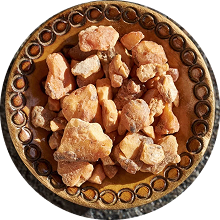Dianthus caryophyllus, carnation or clove pink, is a species of Dianthus. It is probably native to the Mediterranean region but its exact range is unknown due to extensive cultivation for the last 2,000 years.
It is a herbaceous perennial plant growing to 80 cm tall. The leaves are glaucous greyish green to blue-green, slender, up to 15 cm long.
The flowers are produced singly or up to five together in a cyme; they are 3–5 cm diameter, and sweetly scented.
The original natural flower colour is bright pinkish-purple. But cultivars of other colours, including red, white, yellow and green, have been developed. Some fragrance-less carnation cultivars are often used as boutonnieres for men.
Carnations were mentioned in Greek literature 2,000 years ago. "Dianthus" was coined by Greek botanist Theophrastus.
It is derived from the Greek words for divine ("dios") and flower ("anthos"). Some scholars believe that the name "carnation" comes from "coronation" or "corone" (flower garlands).
It was one of the flowers used in Greek ceremonial crowns.
Others think the name stems from the Latin "caro" (genitive "carnis") (flesh), which refers to the original colour of the flower.
Incarnatio (incarnation), which refers to the incarnation of God made flesh.
But the boy, for some reason, turned her down. Diana ripped out his eyes and threw them to the ground where they sprouted into the Dianthus flower.
Why Choose BMV Fragrances?

Premium Quality:
100% pure and natural essential oils, resinoids, absolutes, and fragrance oils, ensuring unmatched quality.

Innovation-Driven:
Continuous investment in R&D to stay ahead of trends and deliver innovative solutions.

Global Leadership:
Trusted by top brands worldwide for excellence in fragrance production.

Extensive Range:
A wide variety of essential oils, perfume oils and fragrance oils to meet diverse industry needs.

Strict Quality Control:
Every batch undergoes rigorous checks for consistent, high-quality products.

Competitive Pricing:
Top-tier products at competitive prices for great value.

Source directly from manufacturer.
Call Now!Balsamic
Balsamic
Balsamic
Copyright @ 2025 | BMV Fragrances Private Limited | All Rights Reserved
Website Design & Digital Marketing by webmasterindia.
Website Updated On:


